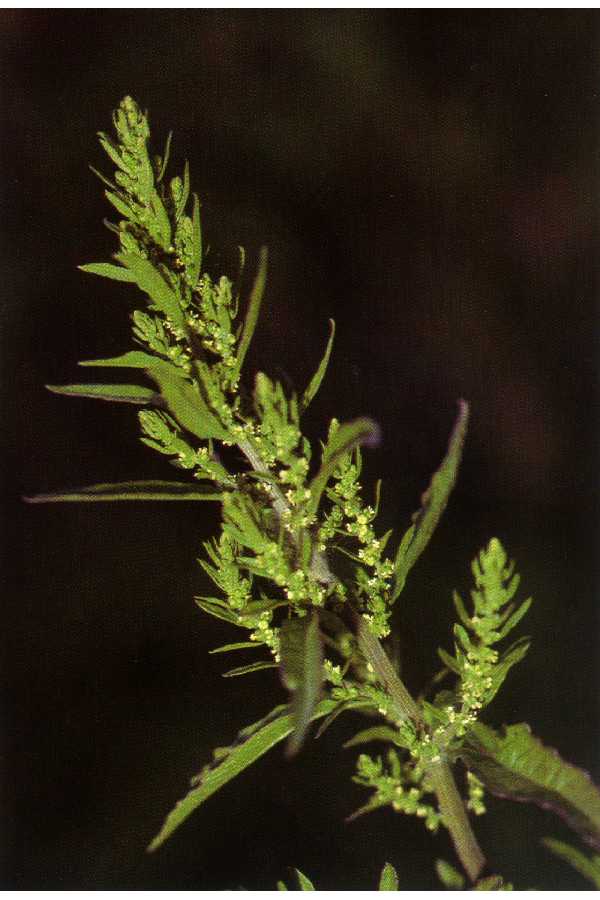Epazote
Introduction
Epazote (Dysphania ambrosioides), also known as wormseed, Jesuit's tea, and Mexican tea, is an aromatic herb commonly used in Mexican cuisine. Known for its distinctive flavor and medicinal properties, epazote is an essential plant for any herb garden. This guide covers everything you need to know about growing epazote.
Ethnobotany
Epazote has been used for centuries in various cultures, particularly in Mexico and Central America, for its medicinal and culinary properties. Traditionally, it is used to treat intestinal parasites, digestive issues, and respiratory problems. The Aztecs and other indigenous peoples used it both as a food flavoring and a medicinal herb. In modern times, it remains a popular ingredient in Mexican cuisine and is often used to season black beans, soups, and stews, where its properties help reduce gas.
Growing Epazote
Planting
- Soil: Thrives in well-draining soil, tolerant of different soil types (pH 5.2 to 8.3).
- Planting Depth: Sow seeds at 1/4 inch depth.
- Spacing: Space plants 18 inches apart.
- Timing: Plant in early spring after the last frost. Can be started indoors and transplanted outside once the weather warms up.
Watering
- Initial Stage: Water regularly until established.
- Established Plants: Drought-tolerant but benefits from consistent moisture during dry periods. Use drip irrigation or soaker hoses for even moisture.
Sunlight
- Requirement: Full sun to partial shade, with at least 6-8 hours of direct sunlight daily.
Fertilizing
- General: Usually grows well without additional fertilization.
- If Needed: Apply a balanced, all-purpose fertilizer if plants appear yellow or stunted.
Pruning
- Purpose: Manage self-seeding and spreading. Prune to encourage bushier growth and prevent invasiveness.
Pests and Diseases
- Pest Resistance: Strong odor deters many insects.
- Common Issues: Can attract thrips (managed with insecticidal soap) and can host viruses like lettuce mosaic virus and tomato spotted wilt virus. Remove infected plants to prevent spread.
Propagation
- Method: Typically propagated from seeds. Sow directly in the garden or start indoors and transplant after the last frost.
Pharmacology
Epazote contains several bioactive compounds, including ascaridole, which has anti-parasitic properties. It is also known for its antiflatulent effects, making it a common addition to bean dishes. Other compounds found in epazote contribute to its antimicrobial, anti-inflammatory, and antioxidant activities.
Medicinal Uses of Epazote (Modified Table)
| Medicinal Use | Preparation and Application | References |
|---|---|---|
| Anti-parasitic | Infusion of leaves, taken orally | [1] |
| Antiflatulent | Leaves added to food, particularly beans | [2] |
| Digestive Aid | Infusion of leaves, consumed as tea | [3] |
| Respiratory Aid | Infusion of leaves, inhaled as steam | [4] |
| Anti-inflammatory | Infusion of leaves, applied topically or taken orally | [5] |
References
- Kasali, F.M., Tusiimire, J., Kadima, J.N., & Agaba, A.G. "Ethnomedical uses, chemical constituents, and evidence-based pharmacological properties of Chenopodium ambrosioides L." Future Journal of Pharmaceutical Sciences. Link
- Jardim, C.M., Jham, G.N., Dhingra, O.D., & Freire, M.M. "Composition and Antifungal Activity of the Essential Oil of the Brazilian Chenopodium ambrosioides L." Journal of Chemical Ecology. Link
- Phytoble. "Epazote: Benefits, Biochemicals, Dosage, Side Effects and Interactions." Link
- Gómez-Castellanos, J.R. "Chenopodium ambrosioides: Revisión a sus características morfológicas, actividad farmacológica, y biogénesis de su principal principio activo, ascaridol." Boletín Latinoamericano y del Caribe de Plantas Medicinales y Aromáticas. Link
- Freire, M.M., Lacerda, D.B., Lima, E.O. "Potential application of epazote (Chenopodium ambrosioides L.) as an antimicrobial and antioxidant agent." Food Chemistry. Link
- The Spruce Eats. "What Is Epazote?" Link
- Organic Facts. "Epazote: Health Benefits." Link
- Mexico In My Kitchen. "Epazote Herb." Link
- Isabel Eats. "Epazote." Link
- Honest Food. "Epazote Salsa Recipe." Link

